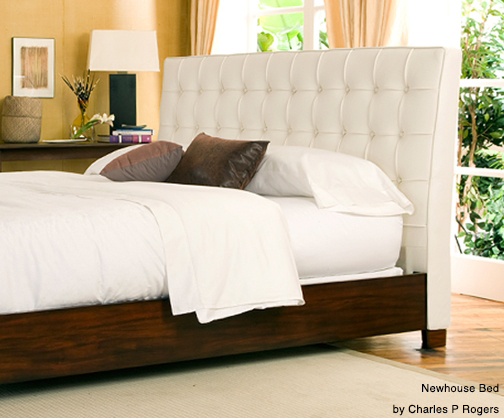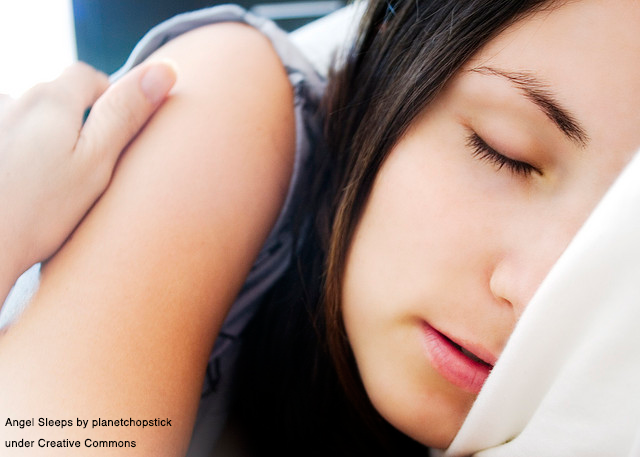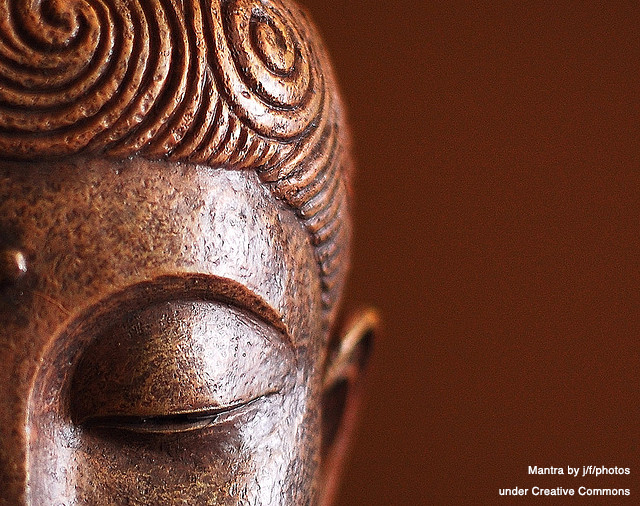Tag Archives: Better Sleep
We have been asleep but will wake up shortly….
Don’t lose hope, the blog will be back… but for now-

https://nypost.com/2018/08/01/fancy-technology-isnt-helping-you-sleep-better-doctors-say/
Five Common Myths About Sleep
Post by Jessica Schoenenberger

How well do you sleep?
This question seems to be cropping up lately. You could say sleep issues seem to be an epidemic. New articles and studies about the importance of sleep to our health come out every day. But still, there are so many common misconceptions about sleep, that even I’m guilty of thinking. Read on to find out the truths behind some of these sleep myths that I have found.
1. You Can Make Up Lost Sleep on the Weekend
Unfortunately, as much as we wish, you can’t make up for your lack of sleep by sleeping all day Saturday. You feel the effects of sleep debt during the week in foggy brain, lethargy, and more. And while sleeping extra long on the weekend might feel nice, it throws off your internal body clock. The best thing you can do for yourself is stick to a schedule and go to bed and wake up at the same time every day. Yes, even on the weekends.
2. 8 Hours of Sleep is Best
All your life you’ve heard that 8 hours of sleep is the healthiest. But in reality different age groups need different amounts of sleep, and so do individuals. Kids 9-13 years old need 10 to 13 hours. 14 to 17 year olds need 8 to 10. And adults need 7 to 9. Personally, I function great with 7 hours of sleep. It’s best to shoot for somewhere in between 7 and 9 and see where you feel the healthiest.
3. People Who are Sleepy During the Day Must not Get Enough Sleep
There are many disorders where a person gets enough sleep, but it isn’t quality sleep, and they end up not feeling their best. If you have sleep apnea, you may always feel tired during the day, even accidentally snoozing at times. If you’re getting your 7-9 hours but are still exhausted, check out what might be causing it, and talk to your doctor if necessary. Could just be that you need a new mattress! (We might be biased on that one).
4. Insomnia Only Means You Can’t Fall Asleep
Speaking of sleep disorders, insomnia tends to be the one we’re most familiar with. But did you know there are many types, and it doesn’t just mean you can’t fall asleep? Not being able to remain sleeping once you fall asleep is another type of insomnia. There’s also acute and chronic insomnia. Acute might be from external factors and resolve on its own, which chronic might need some treatment. If you are having continual trouble sleeping in any way, you should address it.
5. Drinking Alcohol Makes You Sleep Better
While you might crash harder after relaxing with a few drinks, the quality of your sleep won’t be as good. You might fall asleep quicker, but your REM sleep will be sacrificed. It also affects how well you can breathe at night, and makes sleep apnea worse. Plus, you most likely won’t wake up feeling refreshed. So don’t turn to a nightcap to fix any of the sleep issues we’ve been talking about.
There are so many factors that go into a good nights sleep. Unfortunately, there is no one size fits all, easy solution. Taking the time to experiment with your own sleep habits and behaviors while keeping a log may be the best way to determine your personal needs to hit that sweet spot of sleep your body needs.
Sleep and TV
Post by Jessica Schoenenberger

It is finally the time of year when summer ends, and we all breathe a sigh of relief. Not because of weather, but the return of television. The time when the fluffy, summer filler shows are replaced with the exciting fall content. And, at the helm of it this year, is Game of Thrones.
We prepared for the return of this fantasy with a cult following with a special dinner, and sat down to watch it exactly at 9PM that Sunday night. Many of my coworkers make it a point to watch Game of Thrones live, and on Monday mornings the office is a buzz of discussion. Watching Sunday night is mandatory.
This got me thinking. Game of Thrones is a notoriously intense and violent show. And, 9 PM is fairly late to get yourself revved up by complicated banter, battles, and the more than occasional gruesome death. And Game of Thrones is not alone. With every new show either filled with action or attempting to shock and horrify you in new ways to keep you entertained (I’m looking at you Black Mirror) , we have to ask: what do these beloved prime time dramas and bingeable online shows do to our sleep?
According to Men’s Health, two-thirds of people in every single country watch TV in the hour before bed. And indeed, according to Men’s Health, a new study suggests that people who watch violent TV right before bed may suffer more nightmares than those who don’t, which could certainly disturb your sleep. The idea is that when you watch TV, it triggers memories and feelings in your brain subconsciously that are brought back up while you are asleep. It’s been proven waking thoughts extend into dreams, and this is the same idea.
In this day in age, it’s not just the intensity of shows that keep us up however. It’s the availability of shows to binge watch as well. In the UK, around 10 million Brits admit that they have stayed up too late and were tired the next day due to binge watching TV. (BBC.com) No longer slaves to the broadcast schedule, many give into temptation and put on “just one more” before slumbering off. In addition, more and more people stay up to finish live television. This all amounts to a sleep debt: people flat out getting less sleep because they are still awake.
So what can you do? Watch less TV, or curb your viewing before bed. Try to stick to lighter fare in the later hours of the night. Set more of a routine (regular routines are good for sleep anyway) and have a specific bedtime that you won’t let TV seep into. We try to be in bed by 10:30 every night, so we won’t start another episode of anything past 9:45. Switch to reading before bed. Or, just deal with the consequences. We all know that sleep one of the most imperative things for your health. But, if you are willing to accept the following day grogginess every once in awhile to see the next big twist, more power to you. Everything in moderation, right?
Things We Like: Ten Habits To Help You Sleep Better

Post by Kyle St. Romain.
Sleep is one of those unavoidable, mission critical facets of life that we cannot avoid. However, many people treat sleep as a mere inconvenience, and spend their whole lives trying to shortcut the process. Whether your bad relationship with sleep is intentional or otherwise, improving your sleep is one thing you have complete control over that can make one of the biggest impacts on your quality of life.
To help get you on your way (or remind you of what you already know), we’ve put together a list of ten habits to help you sleep better.

5 things to do for better sleep
- Exercise
Exercise is a great way to use up excess energy. In addition to helping you sleep better, exercising is good for your overall health. Instead of worrying about the time of day you exercise or making excuses, just get out there and do it.
2. Eat Healthy
Cut out the fast food and freezer dinners, and reach for fruits and vegetables. It may take some time to notice the change, but eating healthy will not only help you sleep better; it will help you feel better and more energized throughout the rest of your day.
3. Stay Hydrated
The human body is mostly water, and needs to stay hydrated. While the amount of water you need to drink depends on the individual, chances are you aren’t drinking enough. If you’re thirsty, it means you’re dehydrated. Drink enough water throughout the day to where your body doesn’t have to tell you it needs more.
 4. Meditate
4. Meditate
Meditation helps put your mind at ease before falling asleep. I’ve been getting back into it the past couple weeks, and it’s helped a lot. If you’re just beginning, try focusing on your breaths: count one each time you inhale, and when you get to 10 count back down each time you exhale. I usually don’t even make it back down to zero before dozing off.
5. Establish a routine, and stick to it
People are creatures of habit, and one of the best ways to sleep better is to make it a routine. If you wake up for work at the same time every day, then you know what time you need to go to sleep to get enough of it. Many people who establish a sleeping routine don’t even need an alarm clock after a while. Instead, their bodies have learned what to expect and the mind serves as its own clock.
5 things to avoid for better sleep
1. Stay Away From Big Meals Before Bed
While a light snack (peanut butter on celery sticks) can actually help you sleep better through the night, a large meal will not. If you eat a lot before bed, your body will continue to digest the food while you’re trying to sleep. It’s a tug of war that you’re never going to win. Instead, try to eat dinner a couple hours before going to bed to make sure you’re body has had enough time to digest.
2. Avoid caffeine, alcohol, and excessive liquids before bed
Caffeine and alcohol are two of the prime culprits of a bad night’s sleep, though too much water before bed can also wake you from your slumber in search of a bathroom. Caffeine can affect you up to 12 hours after drinking it, so you may even need to cut back on lunchtime coffees. And while alcohol may seem like it helps you fall asleep, it actually causes midnight restlessness.
3. Turn Off The Lights
You need to make sure your bedroom is as dark as possible. One obvious change would be to turn off the lights or television set before you go to bed. If you’ve turned everything off and your room is still brighter than you’d like, consider investing in some blackout curtains. You’ll never be able to reach your full sleep potential in a bright room.
4. Don’t oversleep
Oversleeping can be as bad for your health as not sleeping enough. The average adult needs around 8 hours of sleep, and can vary by a couple hours depending on the individual. In addition to heart disease, depression, and diabetes, oversleeping will leave you feeling more tired when you wake up than you did before.
5. Don’t sleep in an uncomfortable bed
If you don’t have a comfortable bed, then you won’t ever look forward to using it. If you wake up with a sore neck or stiff back in the morning, it may be time in invest in a new mattress or some new pillows. If you’re too hot at night, you can turn down the air conditioning, turn on a fan, or try some new cotton sheets that breathe better. The bottom line is that an uncomfortable bed will ruin what would otherwise be a great night’s sleep. Start here first.
Remember: When forming new habits or breaking old ones, the trick is to go slow. Instead of trying to change everything at once, focus on one thing at a time. This will help ensure that your new habits stick, and permanently become part of who you are.


